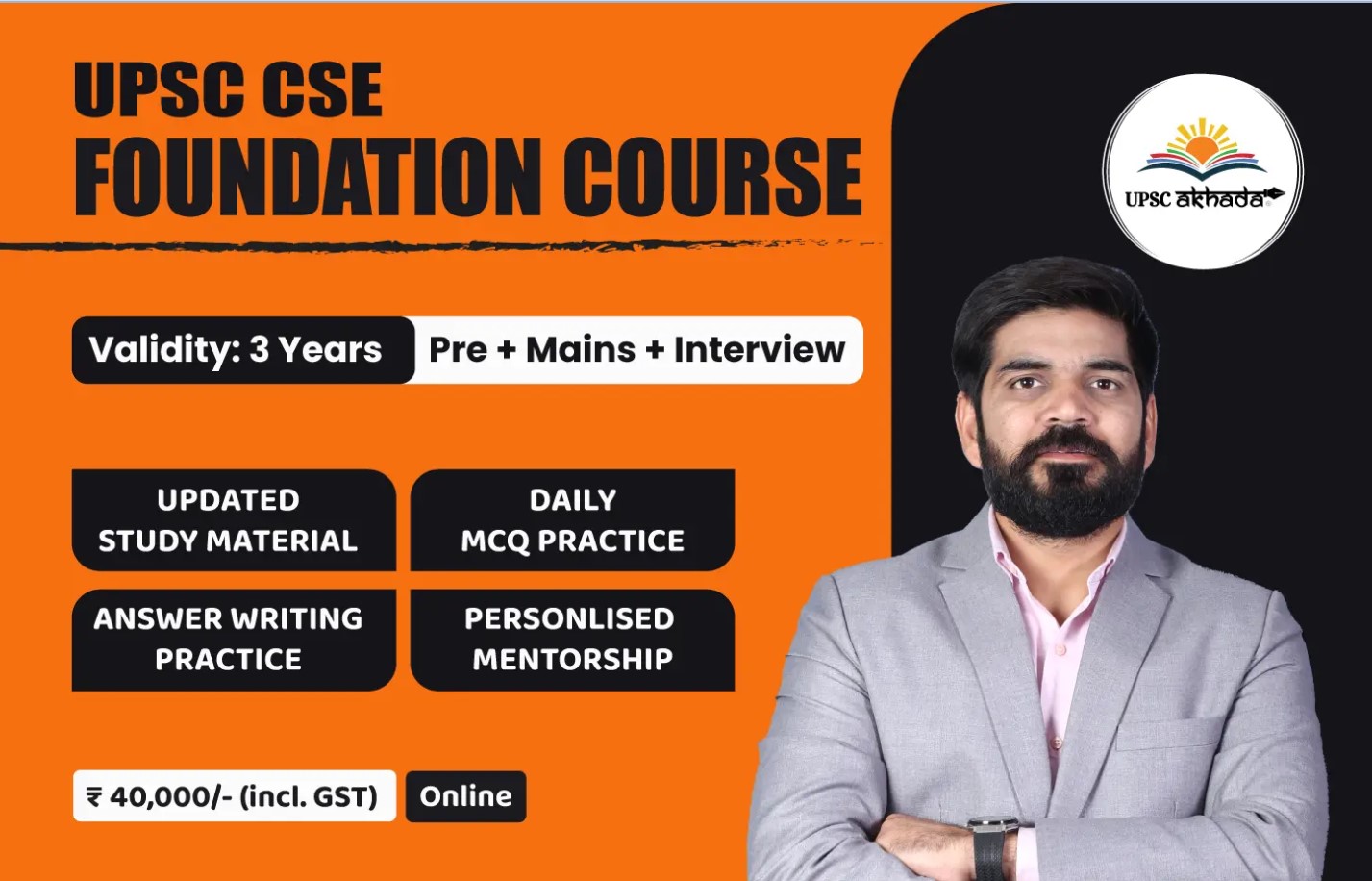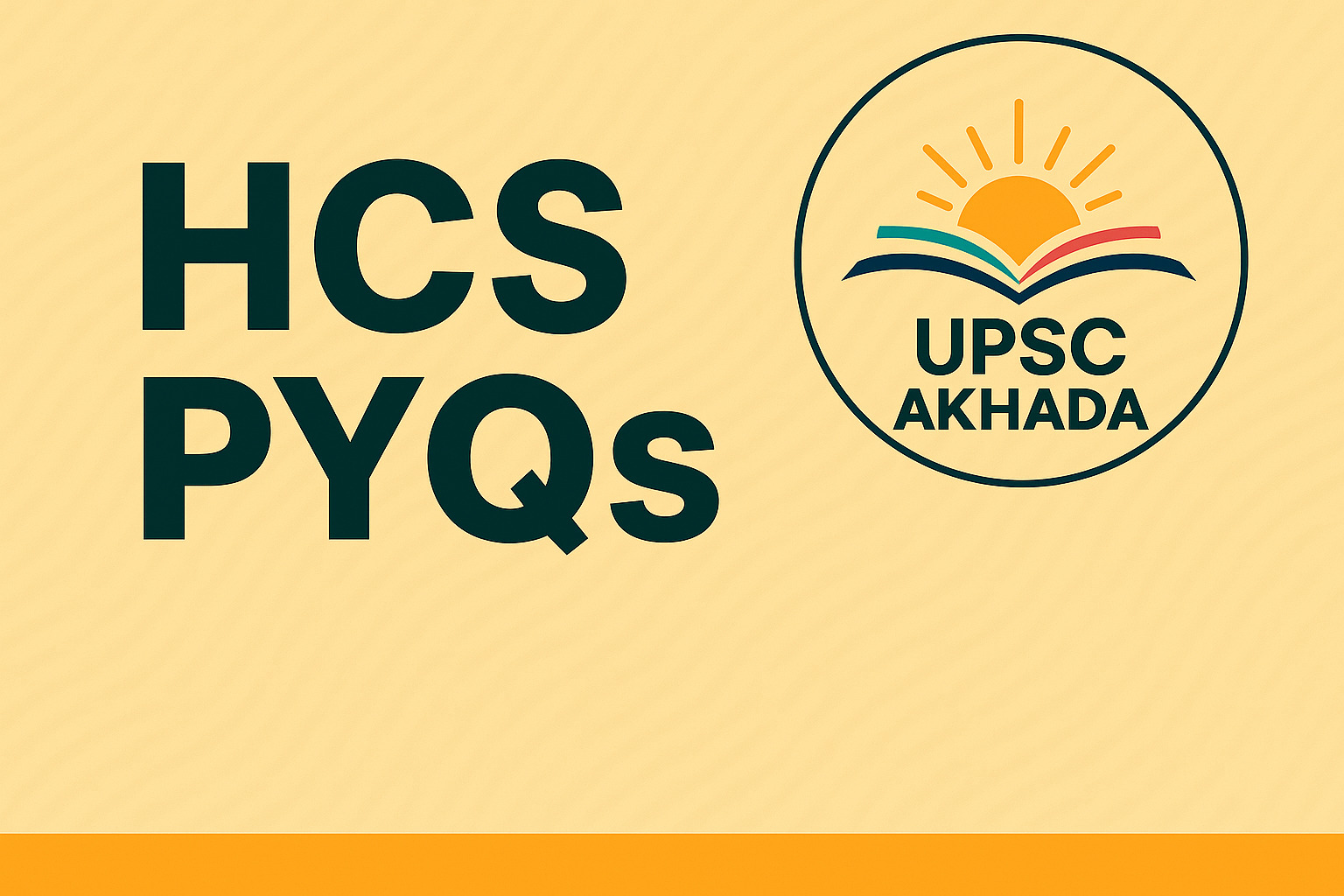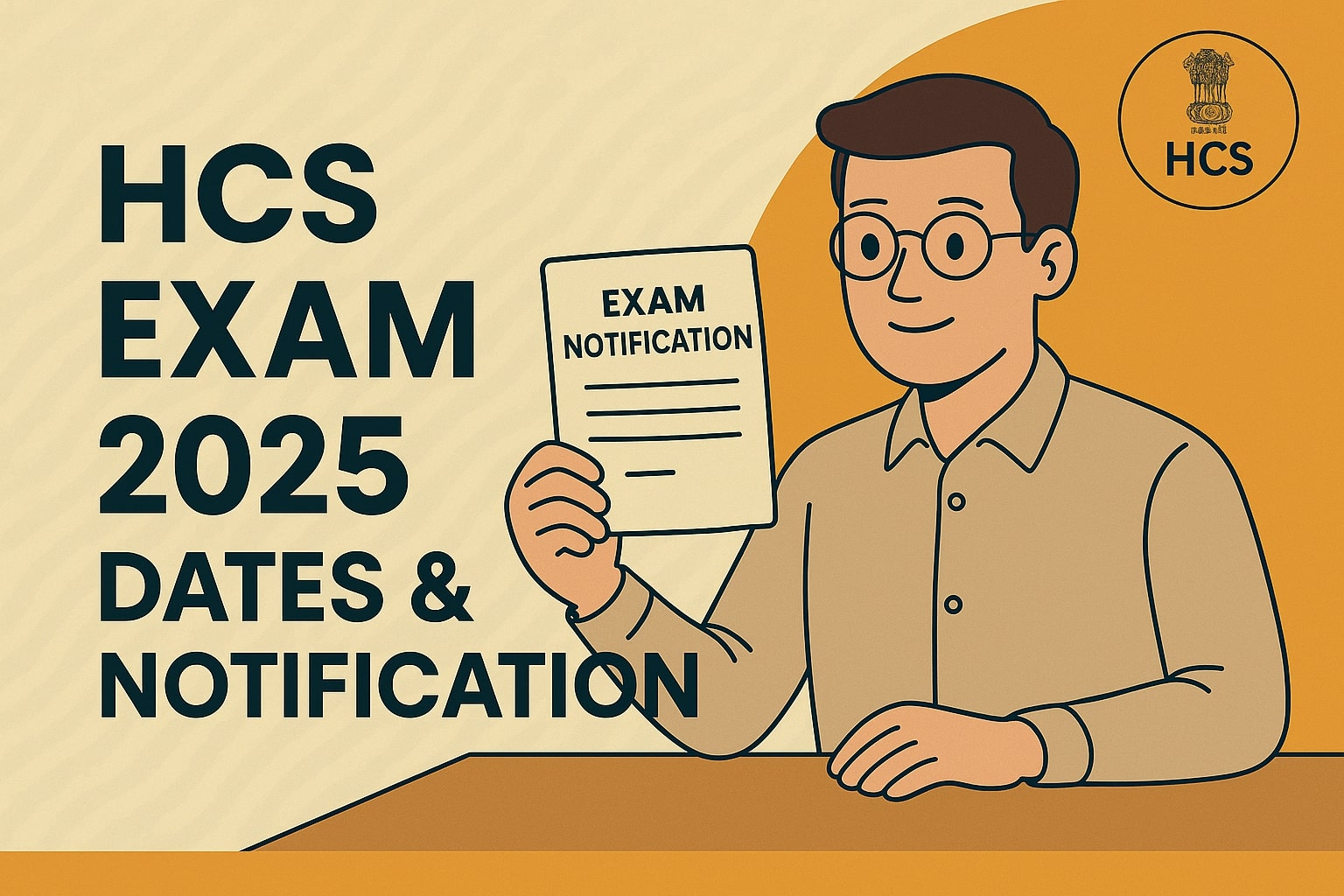
The Union Public Service Commission (UPSC) will conduct the Prelims exam for Civil Services Examination (CSE) 2025 on May 25, 2025. Preparing for the UPSC exam requires a clear understanding of its syllabus. The UPSC Prelims syllabus is often considered a condensed version of the CSE Mains syllabus, and it demands thorough exploration and analysis.
Aspiring candidates generally take over a year to grasp the depth and breadth of the CSE syllabus. While the syllabus is broadly outlined in the IAS notification, aspirants must refer to previous years’ question papers and insights from toppers to understand the exam requirements. This article provides a detailed breakdown of the UPSC Prelims Syllabus 2025, followed by a subject-wise analysis to guide candidates in their preparation.
UPSC Syllabus 2025: Prelims Syllabus Overview

The UPSC Prelims Exam comprises two objective-type papers:
- General Studies Paper 1 (GS-I)
- Civil Services Aptitude Test (CSAT) or GS Paper 2
UPSC Syllabus for General Studies Paper 1 (GS-I) – 200 Marks
This paper includes 100 questions and has a duration of 2 hours. Each question is worth 2 marks. Marks scored in this paper determine qualification for the Mains examination. The syllabus for GS Paper 1 includes:
- Current events of national and international importance
- History of India and Indian National Movement
- Indian and World Geography – Physical, Social, and Economic aspects
- Indian Polity and Governance – Constitution, Political System, Panchayati Raj, Public Policy, Rights Issues, etc.
- Economic and Social Development – Sustainable Development, Poverty, Inclusion, Demographics, Social Sector initiatives, etc.
- Environmental Ecology, Bio-diversity, and Climate Change – Non-specialized knowledge required
- General Science
UPSC Syllabus for CSAT (GS Paper 2) – 200 Marks
This paper consists of 80 questions and also has a duration of 2 hours. Each question is worth 2.5 marks. It is qualifying in nature, with a minimum score requirement of 33%. The syllabus includes:
- Comprehension
- Interpersonal skills, including communication skills
- Logical reasoning and analytical ability
- Decision-making and problem-solving
- General mental ability
- Basic numeracy (Class X level) and Data Interpretation (charts, graphs, tables, etc.)
Subject-Wise Detailed UPSC Prelims Syllabus 2025
Below is the detailed subject-wise breakdown of the UPSC Prelims syllabus for GS Paper 1:
History
Ancient History
- Prehistoric Times
- Indus Valley Civilization
- Vedic Periods (Rig Vedic & Later Vedic)
- Jainism and Buddhism
- Mahajanapadas and Mauryan Empire
- Gupta and Post-Gupta Period
- Sangam Period (South-Indian Dynasties)
Medieval History
- Early Medieval Dynasties (Pratiharas, Pallavas, Chalukyas, Rashtrakutas)
- Delhi Sultanate and Mughal Empire
- Vijayanagar Empire
- Marathas and Decline of the Mughal Empire
Modern History
- Advent of Europeans in India
- British Expansion and Administration
- Revolt of 1857
- Socio-Religious Reforms
- Indian National Movements (Phases 1, 2, 3)
- Constitutional Development in India
Art and Culture
- Architecture and Sculpture
- Paintings and Pottery Tradition
- Performing Arts
- Religion and Literature
- National and Regional Festivals
Polity
- Evolution and Features of the Indian Constitution
- Fundamental Rights, Duties, and Directive Principles
- Union and State Executive, Legislature, and Judiciary
- Local Governance and Panchayati Raj
- Constitutional and Non-Constitutional Bodies
- Political Dynamics and International Relations
Geography
Physical Geography
- Earth’s Evolution and Geomorphic Processes
- Climatology (Temperature, Precipitation, Winds, Cyclones)
- Oceanography (Oceans, Currents, Tides, Marine Resources)
Human and Economic Geography
- Demography, Human Development, and Census
- Agriculture, Industry, and Transport in India
Indian Geography
- Physiography, Climate, Soils, and Vegetation
- Resources (Mineral, Energy, and Land)
- Settlements and Urbanization
Economy
- Basic Concepts: Macro and Microeconomics
- National Income, Growth, and Development
- Inflation, Banking, and Financial Markets
- Budgeting, Taxation, and Fiscal Policy
- Government Schemes and Programs
Ecology and Environment
- Basics of Ecology and Ecosystem Functions
- Biodiversity, Conservation, and Threats to Biodiversity
- Environmental Pollution and Climate Change
- Resource Degradation and Environmental Governance
General Science and Technology
- Science and Technology in India
- Space, Robotics, Biotechnology, and Nanotechnology
- IT, Communication, and Defense Technologies
- Intellectual Property Rights
Exam Pattern of UPSC Mains

The UPSC Mains Exam consists of 9 papers conducted over 5-7 days. Here are the key highlights:
- Only candidates who qualify the Prelims Exam are eligible to appear for the Mains.
- A separate hall ticket is issued to these qualified candidates.
- The Prelims Exam is of a qualifying nature, so the marks obtained in Mains are critical for determining the final rank in the examination.
UPSC Mains Syllabus Topic-Wise 2025

The UPSC Mains Syllabus emphasizes interlinking topics, current events, and fundamental concepts. Understanding it is crucial for exam preparation, as current affairs connect present issues with foundational General Studies topics. The syllabus is detailed annually in the official UPSC notification, with separate Prelims and Mains sections, where the Mains syllabus builds upon the Prelims.
Also Read: UPSC Exam Dates
UPSC Mains Syllabus Indian Languages and English
The aim of the paper is to test the candidate’s ability to read and understand serious discursive prose and express ideas clearly and correctly, in English and the Indian Language concerned. The pattern of questions would be as follows:
- Comprehension of given passages
- Precis Writing
- Usage and Vocabulary
- Short Essays in Indian Languages
- Comprehension of given passages
- Precis Writing
- Usage and Vocabulary
- Short Essays
- Translation from English to the Indian language and vice-versa
Note:
- The Papers on Indian Languages and English are of Matriculation or equivalent standard, and of qualifying nature only. The marks obtained in these papers will not be counted for ranking.
- The candidates will have to answer the English and Indian Languages papers in English and the respective Indian language (except where the translation is involved).

UPSC Mains Syllabus PAPER-I Essay
Candidates may be required to write essays on multiple topics. They will be expected to arrange their ideas in an orderly fashion and write concisely. Credit will be given for effective and exact expression.
UPSC Mains Syllabus PAPER-II General Studies-I: Indian Heritage and Culture, History, and Geography of the World and Society
- Indian culture will cover the salient aspects of Art Forms, Literature & Architecture from ancient to modern times.
- Modern Indian History from about the middle of the eighteenth century until the present- significant events, personalities, issues.
- The Freedom Struggle – its various stages and important contributors/contributions from different parts of the country.
- Post-independence consolidation and reorganization within the country.
- History of the World will include events from the 18th century, such as the Industrial Revolution, World Wars, redrawal of national boundaries, colonization, decolonization, political philosophies like communism, capitalism, socialism, etc., – their forms and effects on the society.
- Salient features of Indian Society, Diversity of India. Role of women and women’s organizations, population and associated issues, poverty and developmental issues, urbanization, their problems and their remedies. Effects of globalization on Indian society – Social empowerment, communalism, regionalism & secularism.
- Salient features of the world’s physical geography.
- Distribution of key natural resources across the world (including South Asia and the Indian sub-continent); factors responsible for the location of primary, secondary, and tertiary sector industries in various parts of the world (including India); Important Geophysical phenomena, such as earthquakes, tsunami, volcanic activity, cyclones, etc., geographical features and their location – changes in critical geographical features (including water bodies and ice caps) and in flora and fauna and the effects of such changes.
UPSC Mains Syllabus PAPER-III General Studies-II: Governance, Constitution, Polity, Social Justice, and International Relations
- Indian Constitution- historical underpinnings, evolution, features, amendments, significant provisions, and basic structure.
- Functions and responsibilities of the Union and the States, issues and challenges pertaining to the federal structure, devolution of powers and finances up to local levels and challenges therein.
- Separation of powers between various organs, dispute redressal mechanisms, and institutions.
- Comparison of the Indian constitutional scheme with that of other countries, Parliament and State Legislatures – structure, functioning, the conduct of business, powers & privileges, and issues arising out of these.
- Structure, organization, and functioning of the Executive and the Judiciary, Ministries and Departments of the Government; pressure groups and formal/informal associations and their role in the Polity.
- Salient features of the Representation of People’s Act.
- Appointment to various Constitutional posts, powers, functions, and responsibilities of various Constitutional Bodies.
- Statutory, regulatory, and various quasi-judicial bodies, Government policies and interventions for development in various sectors and issues arising out of their design and implementation.
- Development processes and the development industry – the role of NGOs, SHGs, various groups and associations, donors, charities, institutional and other stakeholders.
- Welfare schemes for vulnerable sections of the population by the Center and States and the performance of these schemes; mechanisms, laws, institutions and Bodies constituted for the protection and betterment of these vulnerable sections.
- Issues related to development and management of Social Sector/Services in the field of Health, Education, Human Resources.
- Issues related to poverty and hunger.
- Important aspects of governance, transparency, and accountability, e-governance – applications, models, successes, limitations, and potential; citizens charters, transparency & accountability and institutional and other measures.
- Role of Civil Services in a democracy.
- India and its neighborhood – relations. Bilateral, regional and global groupings and agreements involving India and/or affecting India’s interests Effect of policies and politics of developed and developing countries on India’s interests, Indian diaspora.
- Important International institutions, agencies and fora- their structure, mandate.
UPSC Mains Syllabus PAPER-IV General Studies-III: Technology, Economic Development, Biodiversity, Environment, Security, and Disaster Management
Indian Economy
- Planning, mobilization of resources, growth, development, and employment.
- Inclusive growth and associated issues.
- Government budgeting.
Agriculture and Food Security
- Major crops and cropping patterns in India.
- Irrigation systems, storage, transport, and marketing of agricultural produce, and related constraints.
- E-technology for farmers.
- Farm subsidies, minimum support prices, and zero-budget farming.
- Public Distribution System: Objectives, functioning, limitations, and reforms.
- Issues of buffer stocks and food security.
Industrial Development and Infrastructure
- Food processing and related industries: Scope, significance, supply chain management, and upstream and downstream requirements.
- Land reforms in India.
- Effects of liberalization on the economy and changes in industrial policy.
- Infrastructure development in energy, ports, roads, airports, and railways.
- Investment models.
Science and Technology
- Developments and their applications and effects in everyday life.
- Achievements of Indians in science and technology.
- Indigenization and development of new technologies.
- Awareness in IT, space, robotics, nanotechnology, biotechnology, and intellectual property rights.
Environment and Disaster Management
- Conservation, pollution, and environmental degradation.
- Environmental impact assessment.
- Disaster and disaster management.
Internal Security
- Linkages between development and extremism.
- Role of external state and non-state actors in creating internal security challenges.
- Communication networks and cyber security basics.
- Role of media and social networking sites in internal security challenges.
- Money laundering and its prevention.
- Security challenges in border areas and linkages of organized crime with terrorism.
- Security forces and their mandates.
UPSC Mains Syllabus PAPER-V General Studies-IV: Ethics, Integrity, and Aptitude
This paper evaluates a candidate’s ethics, attitude, and approach to integrity, public probity, and problem-solving.
Ethics and Human Interface
- Essence, determinants, and consequences of ethics in human actions.
- Dimensions of ethics in private and public relationships.
Human Values
- Lessons from great leaders, reformers, and administrators.
- Role of family, society, and educational institutions in inculcating values.
Attitude
- Content, structure, and function of attitude.
- Its relation with thought and behavior.
- Social influence, moral and political attitudes, and persuasion.
Foundational Values for Civil Service
- Integrity, impartiality, non-partisanship, objectivity, dedication to public service, empathy, tolerance, and compassion.
Emotional Intelligence (EI)
- Concepts, utilities, and applications in administration and governance.
Contributions of Moral Thinkers
- Teachings from Indian and global moral thinkers and philosophers.
Ethics in Governance
- Public/Civil service values, ethical concerns, and dilemmas in government and private institutions.
- Laws, rules, and conscience as ethical guidance.
- Accountability, ethical governance, and strengthening moral values in governance.
- Ethical issues in international relations and funding.
- Corporate governance.
Probity in Governance
- Concept of public service and philosophical basis of governance.
- Information sharing, transparency, and Right to Information.
- Citizen’s charters, codes of ethics and conduct, work culture, quality of service delivery, utilization of public funds, and corruption challenges.
- Case studies on governance and ethics.
UPSC Mains Syllabus PAPER-VI and PAPER-VII: Optional Subjects
Optional Subjects
- Candidates can choose one optional subject, which consists of two papers (250 marks each).
- The list of subjects includes:
Agriculture, Animal Husbandry & Veterinary Science, Anthropology, Botany, Chemistry, Civil Engineering, Commerce & Accountancy, Economics, Electrical Engineering, Geography, Geology, History, Law, Management, Mathematics, Mechanical Engineering, Medical Science, Philosophy, Physics, Political Science & International Relations, Psychology, Public Administration, Sociology, Statistics, and Zoology.
Optional Literature Subjects
Candidates appearing for the UPSC Civil Services Examination can also choose literature from any one of the following languages as their Optional Subject: Assamese, Bengali, Bodo, Dogri, Gujarati, Hindi, Kannada, Kashmiri, Konkani, Maithili, Malayalam, Manipuri, Marathi, Nepali, Odia, Punjabi, Sanskrit, Santhali, Sindhi, Tamil, Telugu, Urdu, and English.
UPSC Syllabus FAQs
What is the UPSC Syllabus for 2025?
The UPSC syllabus for 2025 is divided into three stages: Prelims: Consists of two papers — GS Paper-I and CSAT Paper-II, Mains: Includes nine papers — Essay, General Studies (4 papers), Optional Subjects (2 papers), and two qualifying language papers (Indian Language and English), Interview: Personality Test to assess a candidate's suitability for civil services.
How can I download the UPSC Syllabus PDF?
The UPSC Syllabus PDF can be downloaded from the official UPSC website: Visit upsc.gov.in, Navigate to the “Examinations” section. Look for the syllabus link for the Civil Services Examination.
What are the key subjects in the UPSC Prelims Syllabus 2025?
The key subjects for UPSC Prelims 2025 are: General Studies (GS) Paper-I: Topics include Current Events, History, Geography, Polity, Economy, Environment, and General Science, CSAT (Paper-II): Tests comprehension, logical reasoning, analytical skills, decision-making, problem-solving, and basic numeracy (up to Class 10 level).
What topics are included in the UPSC Mains Syllabus?
The UPSC Mains Syllabus includes: Essay Paper: Writing essays on multiple topics; General Studies: Four papers covering Indian Heritage, Polity, Governance, Economy, Technology, Ethics, and more. Optional Subject: Candidates choose one subject from 26 available options (or literature in one of the specified languages);Qualifying Papers: Indian Language and English. Each paper has a detailed theme and requires in-depth preparation.
How can I prepare for the UPSC Prelims and Mains syllabus?
Here are some key strategies to prepare effectively: Understand the Syllabus: Study the official UPSC syllabus to clearly know the topics to be covered; Read NCERTs: NCERT books from Classes 8-12 are crucial for building conceptual clarity; Refer to Standard Books: Read subject-specific reference books like Polity by M. Laxmikanth, History by Spectrum, and Economy by Ramesh Singh; Stay Updated with Current Affairs: Regularly read newspapers and current affairs magazines; Solve Previous Year Papers: Analyze past year question papers to understand the pattern and identify important topics.
How is the UPSC Mains syllabus different from the Prelims syllabus?
The UPSC Mains syllabus is more detailed and descriptive compared to the Prelims syllabus. While Prelims focuses on objective questions covering broad topics like current affairs, history, and geography, the Mains syllabus requires in-depth knowledge and analytical writing skills. Mains includes Essay writing, General Studies papers (with topics like Ethics, Economy, and Polity), and an Optional Subject, which are not part of Prelims.











